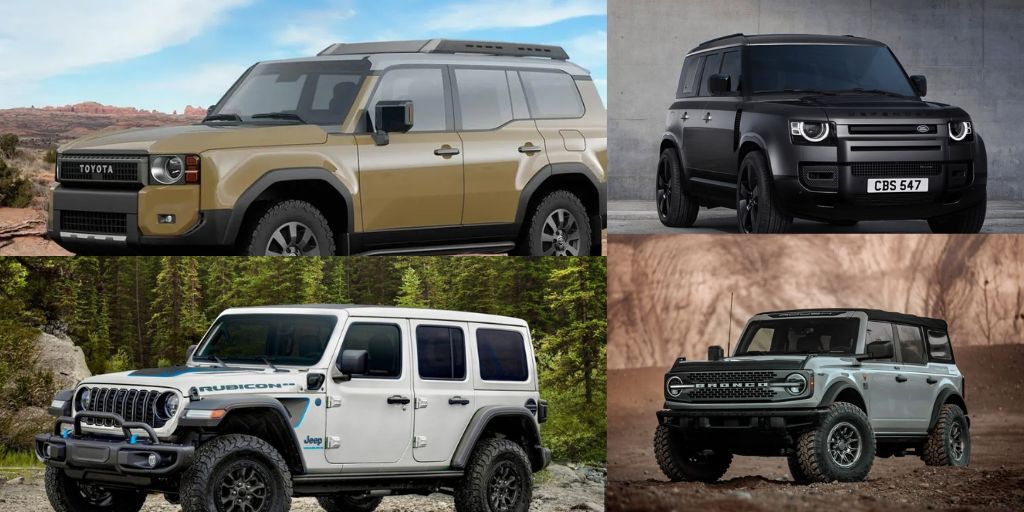Off-roading is an adventure that demands more from your vehicle than just being able to drive in a straight line. It requires a vehicle that can handle unpredictable terrain, extreme weather, and rough conditions without falling apart.
SUVs that hold up off-road tend to have advanced features like rugged suspension systems, high ground clearance, and all-terrain tires that help them tackle difficult paths. On the other hand, some SUVs may seem like great off-road choices but fail to stand the test of time.
These vehicles, due to poor construction, unreliable parts, or underperformance in harsh conditions, tend to break down faster when put to the test.
In this article, we’ll look at 5 SUVs that excel in off-roading, providing reliability and durability in even the toughest environments.
We’ll also discuss 5 SUVs that are more likely to fail under demanding off-road conditions, often due to mechanical or design weaknesses.
Whether you’re an off-road enthusiast or someone looking to buy an off-road-capable vehicle, understanding which SUVs hold up and which ones don’t is crucial.
Also Read: 5 Cars That Still Drive Like New After 200K Miles and 5 That Don’t
5 SUVs That Hold Up Off-Road
When it comes to off-roading, a vehicle’s capability isn’t just about horsepower—it’s about how well it can handle rough trails, steep inclines, and unforgiving terrain.
SUVs that excel off-road are typically equipped with robust 4WD or AWD systems, excellent suspension setups, and tires built for traction on mud, gravel, and rocks.
They also need to be sturdy enough to withstand damage from rough conditions while keeping the ride comfortable for the driver and passengers.
These vehicles are designed with durability in mind, making them suitable for enthusiasts who love exploring wilderness areas or tackling tough trails.
Choosing an off-road SUV can be a challenging decision, as it requires balancing several features such as reliability, performance, comfort, and overall build quality.
Some SUVs have a reputation for enduring the roughest of terrains without breaking a sweat, while others are known for their exceptional off-road systems.
It’s crucial to focus on factors like ground clearance, approach and departure angles, and the ability to endure extended use without requiring frequent repairs.
Here are five SUVs that have consistently proven themselves off-road and continue to hold up well in harsh conditions, offering peace of mind and performance when you venture off the beaten path.
1. Toyota Land Cruiser
The Toyota Land Cruiser is widely regarded as one of the best off-road vehicles of all time.
With a legacy built on rugged durability, the Land Cruiser is a favorite among off-roaders who need a vehicle that can handle the toughest conditions.
The key to its off-road prowess is its combination of a robust body-on-frame construction, a powerful 4WD system, and excellent ground clearance.
The Land Cruiser’s advanced suspension system allows it to absorb bumps and dips on rough terrain while maintaining stability.
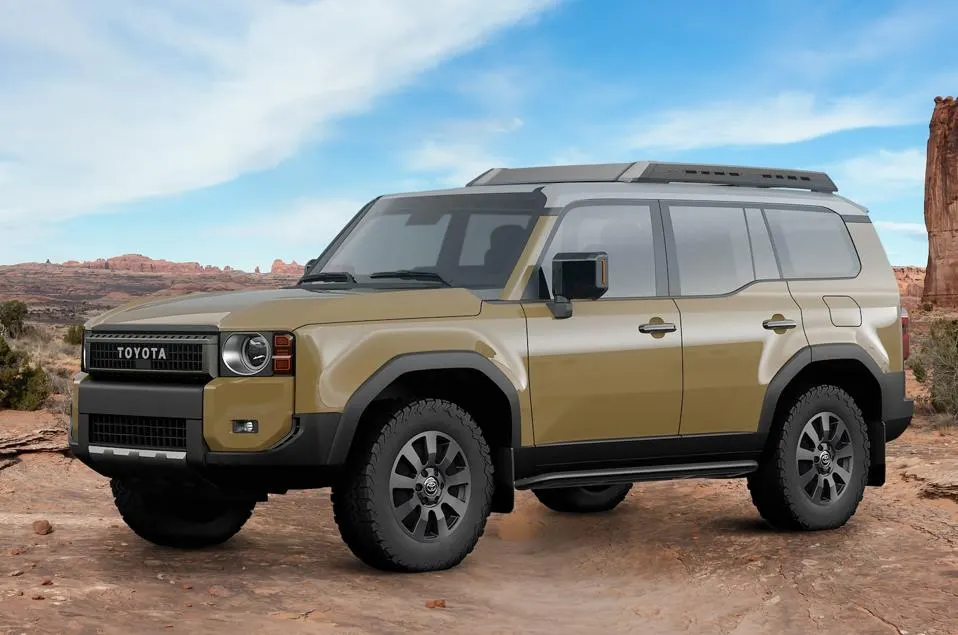
Its full-time 4WD system, paired with the Kinetic Dynamic Suspension System (KDSS), ensures that the vehicle can crawl over rocks, mud, and sand without losing traction.
The Land Cruiser’s durability is further enhanced by its strong V8 engine, making it capable of pulling heavy loads, navigating steep inclines, and powering through tough trails with ease.
Land Cruiser’s interior, though luxurious, is built to withstand harsh conditions, providing comfort during long off-road expeditions. One of the main reasons it holds up off-road is its long-lasting mechanical parts, which are designed for endurance.
The Toyota Land Cruiser isn’t just a capable off-roader; it’s a legend in the field, trusted by those who demand the most from their vehicles.
2. Jeep Wrangler Rubicon
The Jeep Wrangler has long been the standard for off-road vehicles, and the Rubicon trim takes that legacy to the next level. Known for its unparalleled off-road capabilities, the Wrangler Rubicon is built for tackling even the most challenging terrains.
It features front and rear Dana 44 axles, locking differentials, and a rock-crawling transfer case, making it a top choice for anyone serious about off-roading.
The Wrangler Rubicon’s ability to take on obstacles like boulders, deep ruts, and sand dunes is largely due to its solid axle setup, which provides exceptional articulation.
Additionally, its high ground clearance and superior approach and departure angles make it ideal for navigating steep inclines and rough trails.
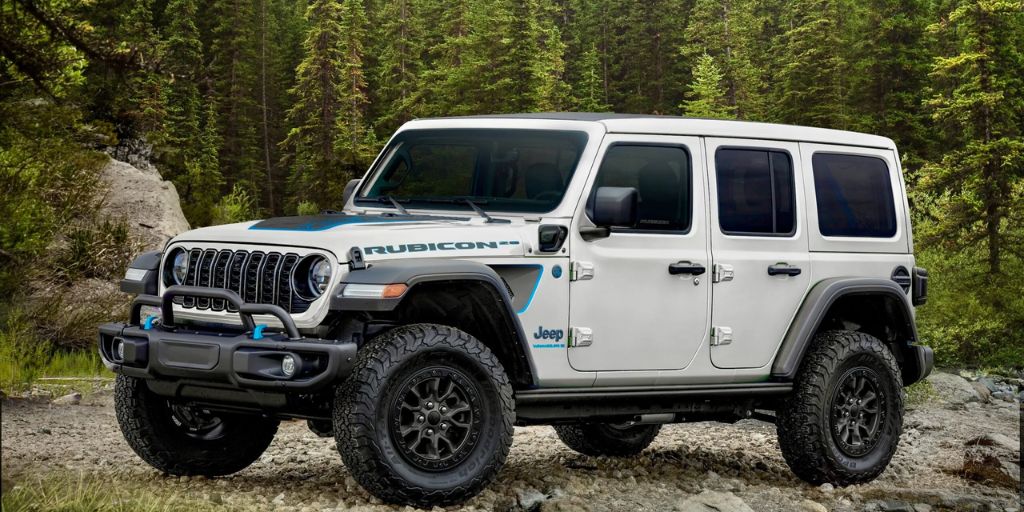
The Jeep’s rugged design and off-road features are backed by a strong 4WD system, capable of providing power to all four wheels at once.
With a history of being modified by off-road enthusiasts, the Jeep Wrangler Rubicon continues to be a go-to choice for those who want a vehicle that can handle extreme conditions without compromising performance.
Its tough build and reliability in off-road conditions make it a staple for any adventure seeker.
3. Land Rover Defender
Land Rover’s Defender has long been synonymous with off-road adventures, thanks to its durable construction and cutting-edge technology. The new Defender continues this legacy with a mix of modern performance and old-school toughness.
One of the standout features of the Defender is its Terrain Response system, which adjusts the vehicle’s systems for optimal performance across different off-road conditions, including mud, sand, rocks, and snow.
The Defender is also equipped with an adjustable air suspension system that enhances its ground clearance and comfort on rough terrain.
Additionally, its four-wheel-drive system is incredibly responsive, giving it a competitive edge when climbing steep slopes or crossing challenging terrain. Its design ensures that it’s not only functional but also reliable, with a sturdy chassis that can withstand rough usage.
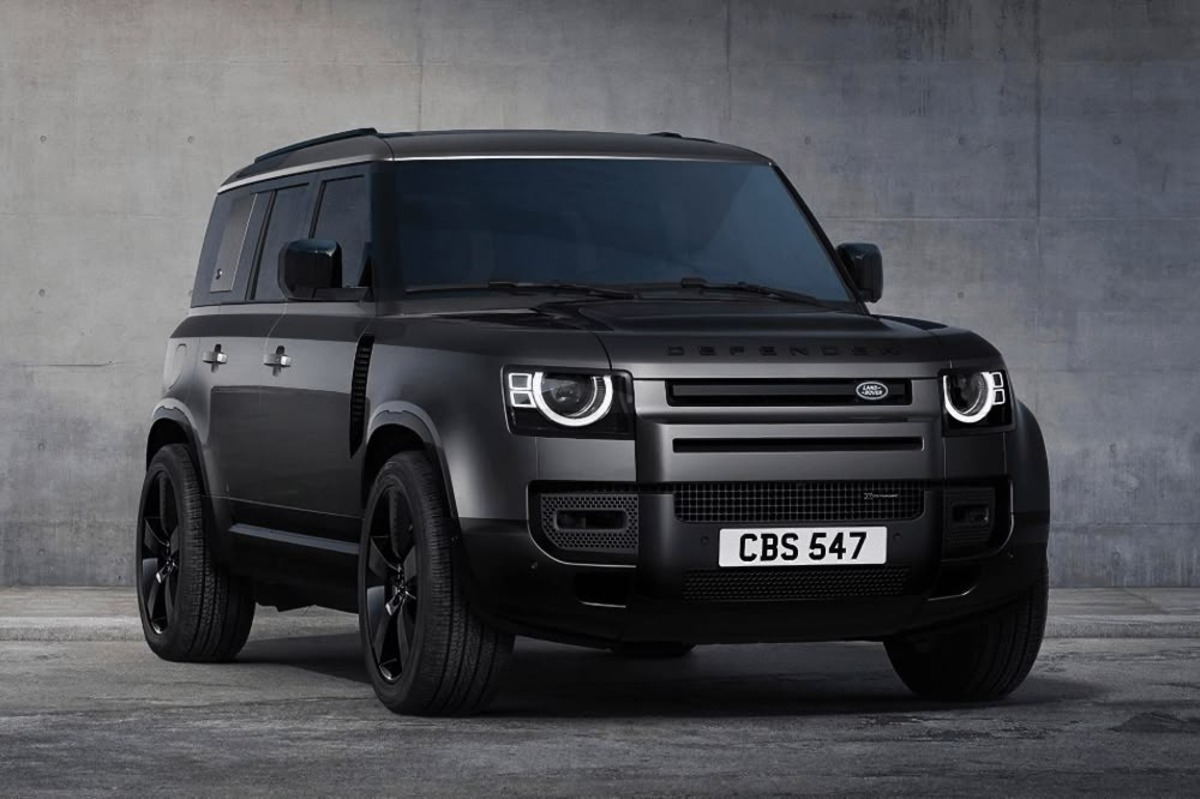
Defender’s mix of heritage and modern tech makes it an excellent choice for those who want a true off-roading experience, without sacrificing comfort or style. Its versatility and ability to handle extreme off-road conditions make it a solid contender in this list.
4. Ford Bronco
The Ford Bronco has made a grand return with modern off-road capabilities that rival the best in the market. With a heritage rooted in rugged off-road performance, the 2021 Bronco was designed from the ground up to be an off-road powerhouse.
The Bronco offers two 4WD systems, along with an electronic-locking rear differential, which give it superior traction on challenging surfaces.
The vehicle’s high ground clearance, along with an advanced suspension system, allows it to tackle everything from deep mud to steep rock faces.
The Bronco also features G.O.A.T. Modes (Goes Over Any Terrain), which allows drivers to select the best driving mode for specific conditions, ensuring optimal performance in various environments.
The Bronco’s off-road-ready tires, short wheelbase, and flexible suspension make it incredibly capable on rugged trails.
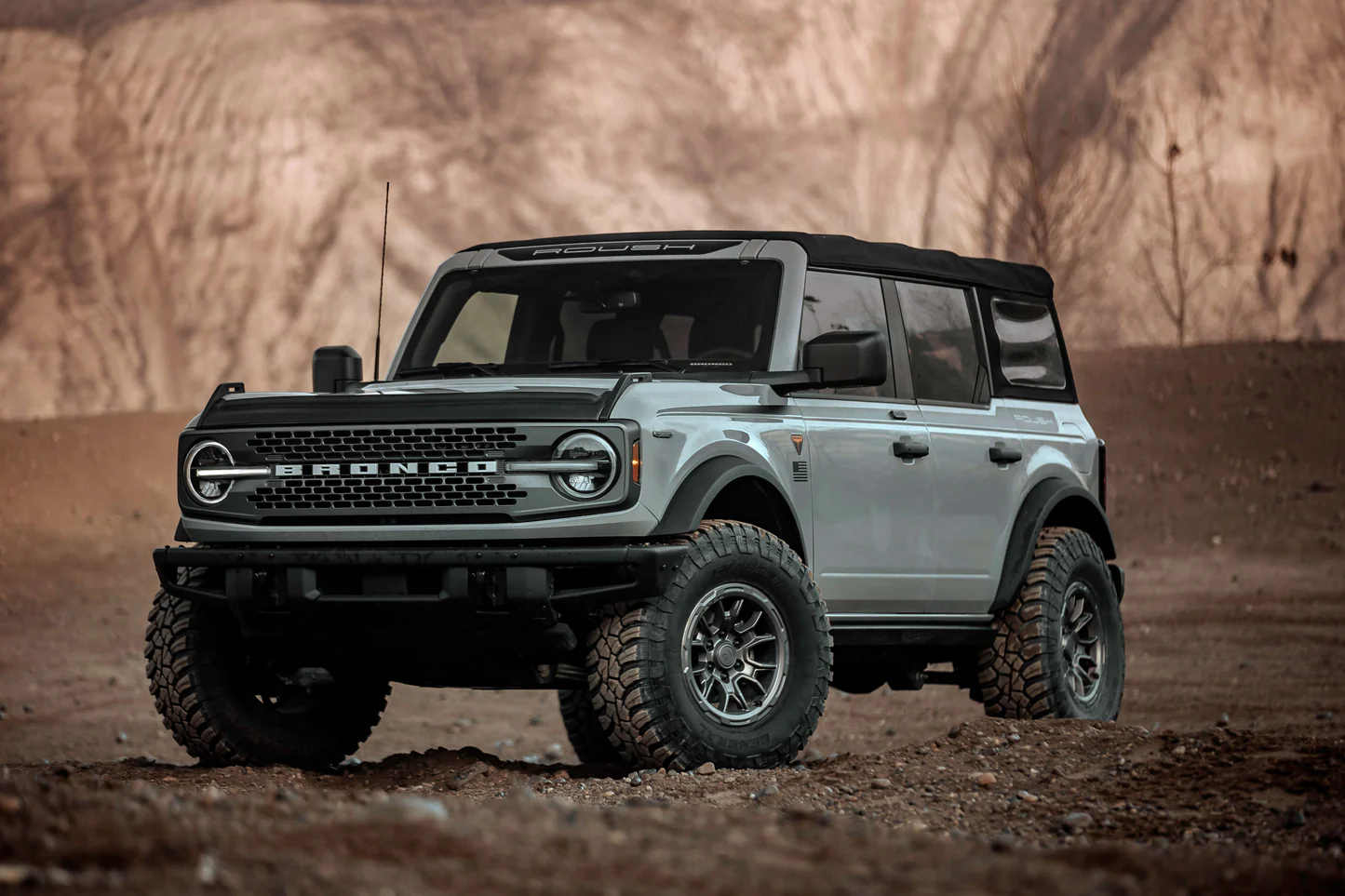
Its off-road capabilities are backed by a robust frame and design, ensuring that it can withstand harsh conditions while offering comfort and stability for the passengers. The Ford Bronco has quickly earned a reputation as a top choice for off-road enthusiasts.
5. Mercedes-Benz G-Class
The Mercedes-Benz G-Class is known for its luxury, but it’s also one of the best off-road vehicles available. The G-Class combines a powerful engine with an advanced 4WD system that includes three fully locking differentials, allowing it to tackle tough obstacles without issue.
Its rigid body-on-frame construction ensures that it can endure heavy stress and harsh conditions, making it a reliable choice for off-road adventures.
Its high-performance suspension system offers exceptional handling and stability, even on uneven terrain. Whether you’re crossing a muddy trail, climbing rocks, or driving on snow-covered paths, the G-Class is equipped to handle it all.
The G-Class is also known for its ability to maintain traction in all conditions, providing a sense of security when venturing off-road.
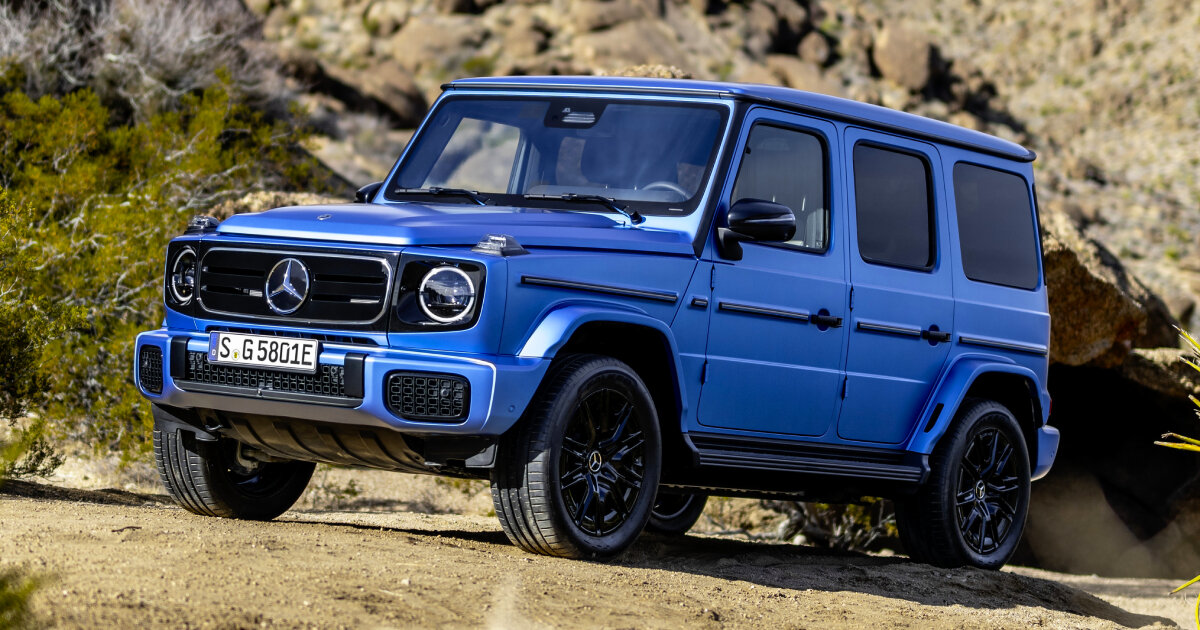
Though the G-Class is often considered a luxury vehicle, it doesn’t compromise on off-road performance, and it remains one of the best in terms of durability and capability in extreme conditions.
5 SUVs That Break Down Fast
While some SUVs are engineered to endure the most challenging off-road conditions, others are plagued by mechanical weaknesses that make them prone to breaking down when subjected to rough terrain.
These vehicles may look the part on paper, but in real-world testing, they struggle with durability and reliability when it comes to harsh off-road environments.
For off-roading enthusiasts or those planning extended outdoor adventures, the last thing you want is to be stuck on a trail with a vehicle that fails to hold up.
Several factors contribute to an SUV’s breakdowns during off-road use. These include weak suspension systems that can’t handle uneven surfaces, poor drivetrain reliability that fails under load, and components that wear down too quickly when put to the test.
Whether it’s an underwhelming 4WD system, a weak engine, or fragile body parts, these SUVs simply aren’t designed to thrive in tough off-road conditions.
As a result, they may experience frequent mechanical issues, often leading to expensive repairs or even leaving drivers stranded.
In this section, we will discuss five SUVs that have a reputation for breaking down under tough off-road conditions. Whether it’s due to mechanical flaws, poor design choices, or a lack of rugged durability, these vehicles are not built for sustained off-road adventures.
Understanding why these SUVs break down can help potential buyers make informed decisions, avoiding frustration and costly repairs down the line.
1. Chevrolet Traverse
While the Chevrolet Traverse is often marketed as a family-friendly SUV with decent off-road capabilities, it falls short when pushed to its limits in rugged terrain.
Its standard AWD system is not designed for extreme off-roading, and its suspension system struggles to handle rough trails and uneven surfaces.
The Traverse’s chassis is not as durable as other off-road vehicles, making it prone to cracking and suffering from alignment issues when subjected to harsh conditions.
One of the main issues with the Traverse off-road is its lack of low-range gearing, which is essential for crawling over obstacles like rocks and steep inclines. This absence leaves the vehicle’s drivetrain overworked, leading to potential mechanical failure, such as transmission problems or engine strain.
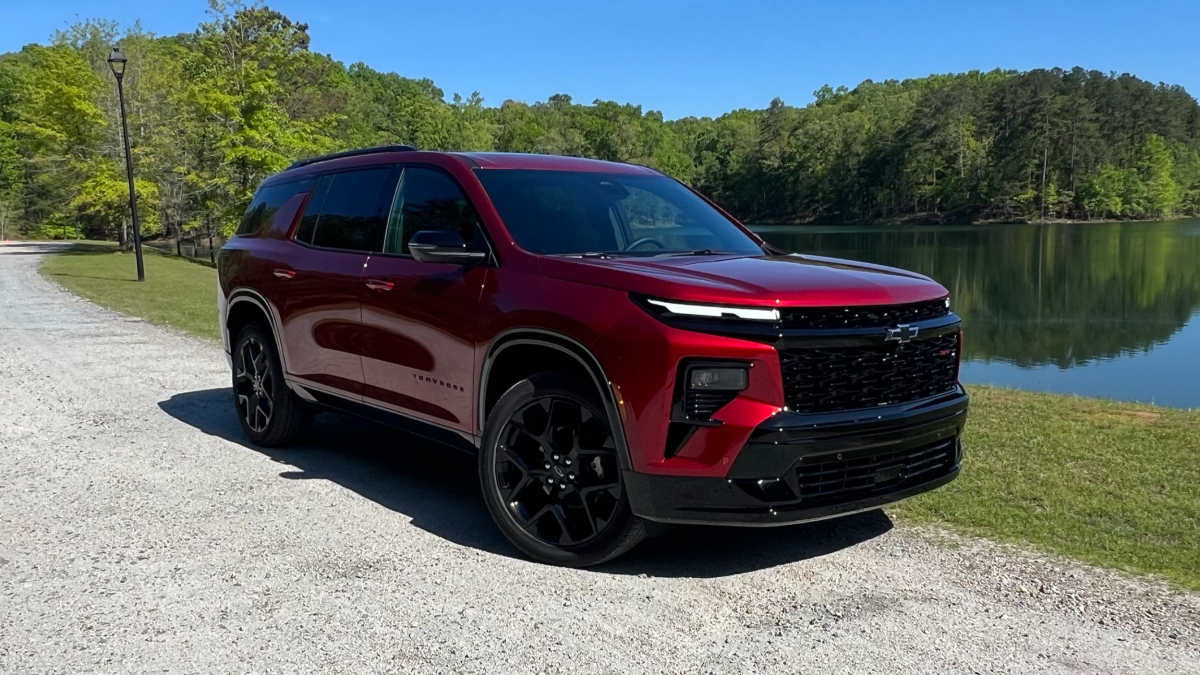
Additionally, the Traverse has been known for premature wear of the suspension components, including shocks and struts, especially when used on rough terrain.
While the Traverse may do okay on a smooth dirt road or light trails, it is not built for sustained off-road performance. Drivers who push it too hard can expect breakdowns, particularly in areas like the transmission and suspension system, both of which are costly to repair.
2. Honda Passport
The Honda Passport, while offering a more rugged appearance than other Honda models, doesn’t quite live up to the off-road performance that many drivers expect.
Despite being equipped with an AWD system, the Passport often struggles in more challenging off-road environments due to its relatively low ground clearance and lack of advanced off-road technologies.
The biggest issue with the Passport is its weak suspension system, which can easily be damaged when driving over rocky or uneven surfaces.
The vehicle’s rear suspension tends to break down quicker than other off-road vehicles, especially when towing or driving through deep mud. This issue, combined with a low approach angle and an underpowered drivetrain, makes the Passport less reliable off-road.
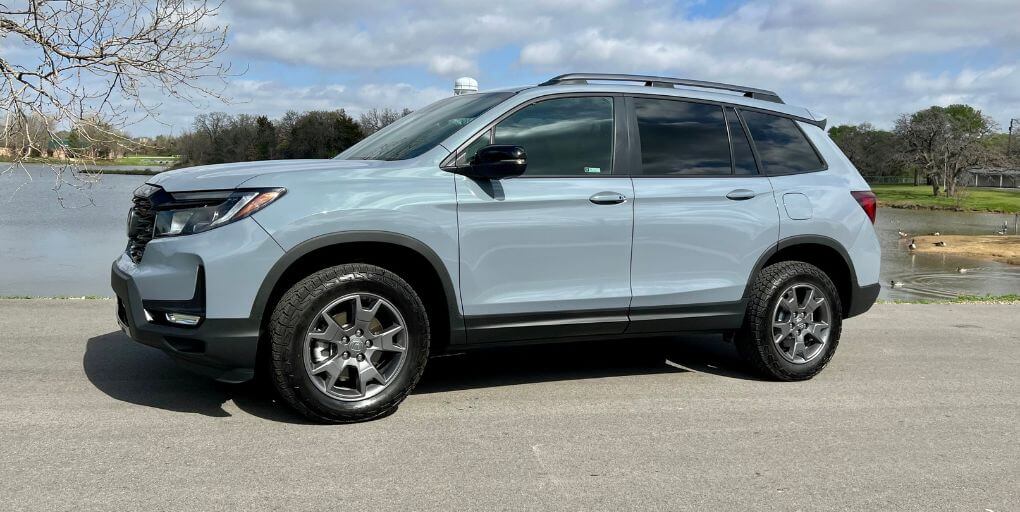
Although it can handle light trails and forest roads, the Passport often breaks down when faced with obstacles such as deep ruts or steep inclines.
Furthermore, parts like the exhaust system and shocks tend to wear out faster, leading to costly repairs and limited off-road durability.
3. Ford Explorer
The Ford Explorer is another SUV that is often praised for its appearance and comfort, but it doesn’t perform as well as some may think when it comes to off-road conditions.
Although some Explorer models come with an optional 4WD system, they are not equipped with the kind of rugged build required for tough off-roading. Its suspension and drivetrain aren’t built to handle prolonged stress from bumpy trails or steep inclines.
Many owners of the Ford Explorer report frequent issues with the suspension, including premature wear of shocks and struts, which can cause handling problems and breakdowns.
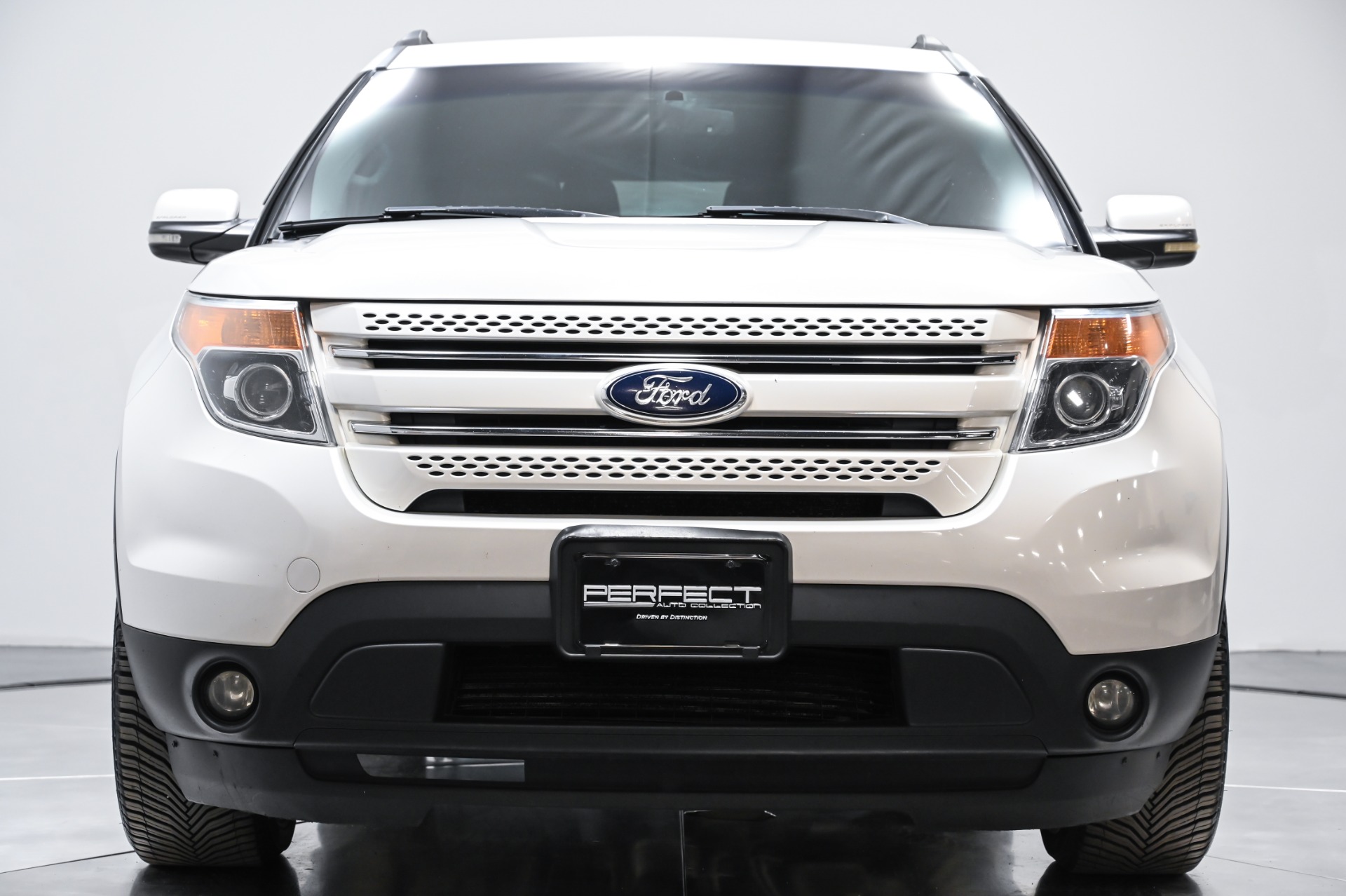
The Explorer’s body is not as durable as some other off-road-capable SUVs, and when subjected to rough conditions, it is more likely to experience cracks or misalignment issues.
Its 4WD system also lacks the low-range gearing necessary for navigating more extreme obstacles, further contributing to its breakdown rate.
When pushed hard off-road, the Explorer’s drivetrain tends to overheat, leading to transmission and engine issues.
Overall, while the Explorer may handle a dirt road or two, it isn’t suited for the demands of serious off-roading, and owners can expect mechanical breakdowns if the vehicle is driven off the beaten path for too long.
4. Jeep Compass
The Jeep Compass is another SUV that might look like it’s ready for off-roading but often falls short in tough conditions. While it does have a 4WD option, it’s primarily designed for light-duty off-roading, not for challenging trails or rugged terrain.
The Compass’s drivetrain and suspension system struggle with uneven surfaces, and the vehicle’s compact size and lower ground clearance limit its ability to handle obstacles like large rocks and deep mud.
The Compass often experiences issues with its transmission, especially when shifting gears under load. Drivers have reported significant overheating problems when the vehicle is pushed off-road, which can result in total transmission failure.
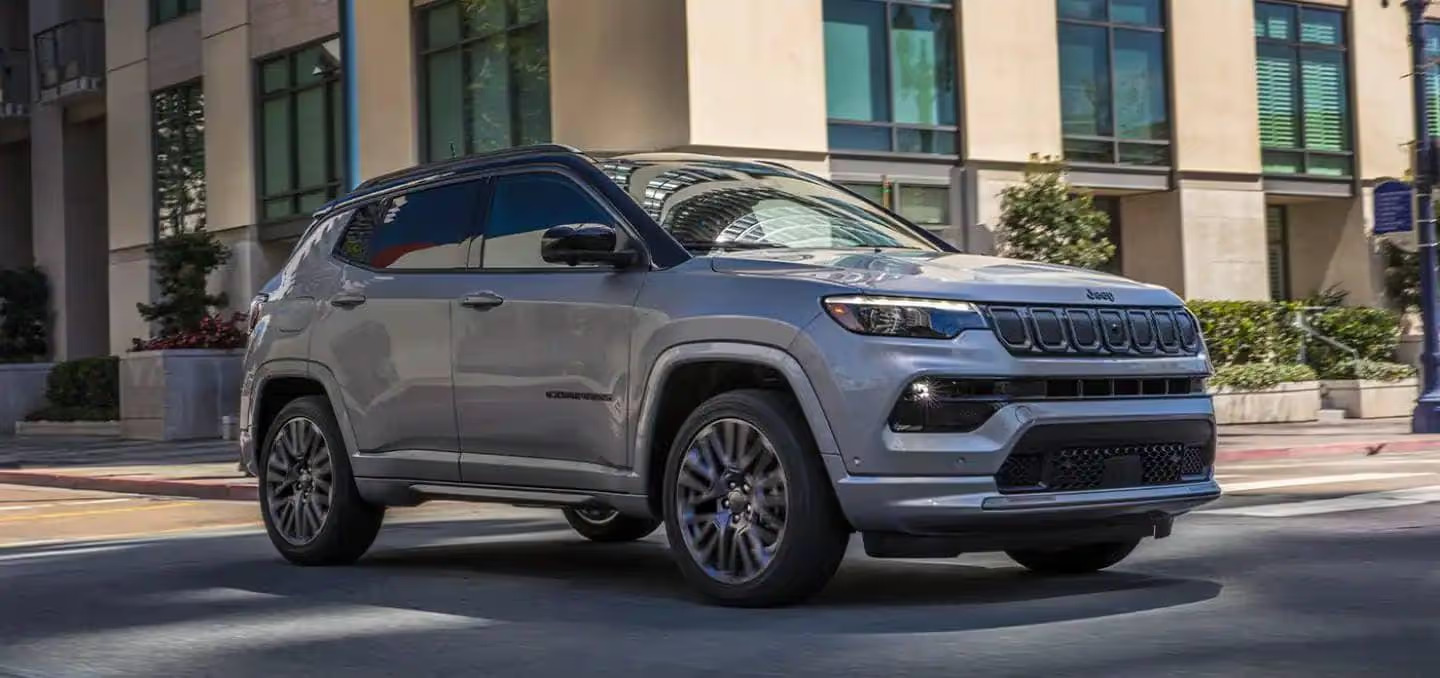
Additionally, the Compass’s suspension system is prone to wear, and its shocks often fail after prolonged use on rough trails. These issues make the Compass a poor choice for anyone planning to regularly drive through challenging off-road conditions.
While the Jeep Compass is capable of handling light gravel or dirt roads, it is not suitable for tougher terrains. Expect breakdowns, particularly in the drivetrain and suspension systems, if you take it off-road too often.
5. Chrysler Pacifica
While the Chrysler Pacifica is technically a minivan, it is often touted as a potential all-wheel-drive (AWD) vehicle that can handle light off-roading.
However, this minivan struggles significantly off-road due to its low ground clearance, weak AWD system, and poor durability. The Pacifica is more suited for city roads and family trips than it is for anything resembling serious off-roading.
One of the biggest weaknesses of the Pacifica off-road is its drivetrain, which isn’t built to endure rough conditions. The AWD system often overheats and causes mechanical failures when attempting to traverse rough terrain.
Furthermore, the suspension is not designed for extended off-road use, and it wears out quickly when exposed to bumps and jolts.
Components like axles and the differential are not as strong as those found in off-road-ready SUVs, making the Pacifica prone to breakdowns under harsh conditions.
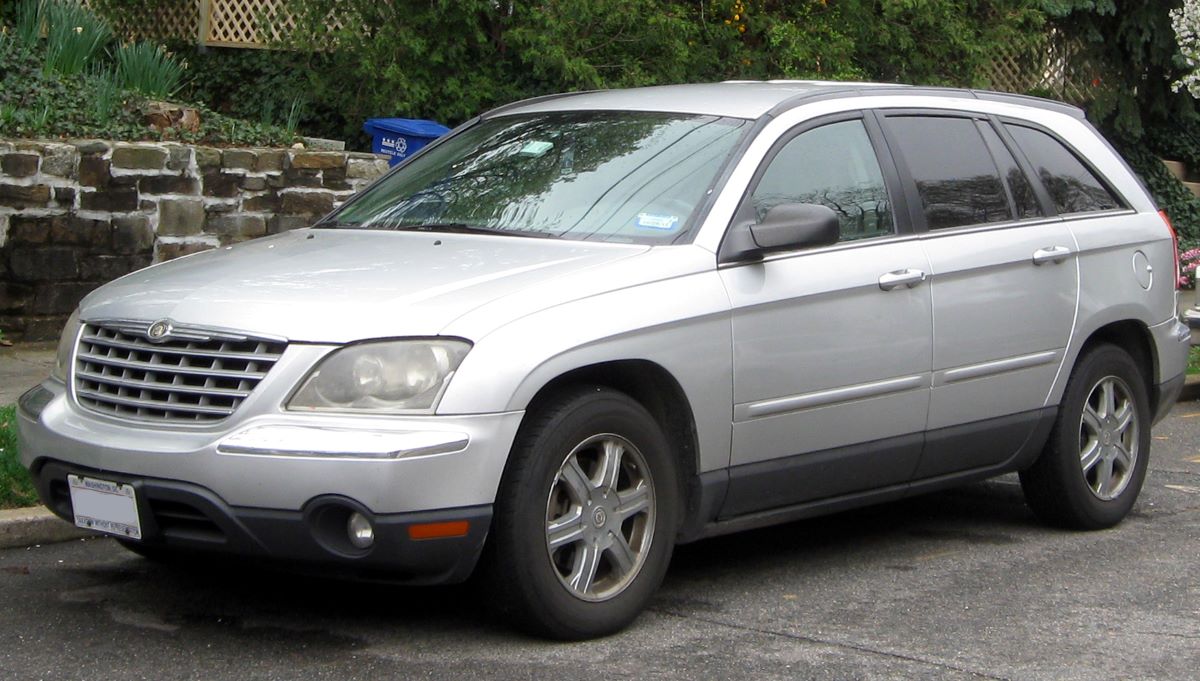
The Chrysler Pacifica is not designed to handle rough terrain, and owners who take it off-road will likely experience breakdowns, particularly with the drivetrain and suspension system. It’s better suited for urban driving and light trips rather than off-road adventures.
When it comes to off-roading, not all SUVs are built equally. Some vehicles are designed to tackle the toughest trails and conditions, providing a reliable and durable driving experience, while others falter when pushed to their limits.
The SUVs listed in the first section—like the Toyota Land Cruiser and Jeep Wrangler Rubicon—are prime examples of vehicles that continue to impress in extreme off-road environments.
These vehicles have been engineered with robust features like superior suspension systems, high ground clearance, and advanced 4WD capabilities, making them ideal for off-road enthusiasts who demand both performance and longevity.
On the other hand, the SUVs listed in the second section, such as the Chevrolet Traverse and Jeep Compass, struggle in tough off-road conditions. They lack the necessary durability and rugged features needed to handle extreme terrains.
While these vehicles may perform well on smooth roads and light trails, they often break down quickly when faced with obstacles like deep ruts, steep inclines, or rocky paths.
Issues such as suspension failure, drivetrain overheating, and premature component wear make them unsuitable for serious off-road use, and owners may find themselves dealing with costly repairs more frequently.
If you’re planning on taking your SUV off-road regularly, it’s essential to choose a vehicle that is purpose-built for the task.
Vehicles like the Land Cruiser and Wrangler Rubicon are engineered to endure the toughest conditions, offering both reliability and performance.
However, vehicles like the Ford Explorer and Chrysler Pacifica may not hold up as well when the terrain gets rough, and are better suited for lighter driving on well-maintained paths.
Also Read: 5 Cars With Great Factory Warranties and 5 With Useless Coverage

